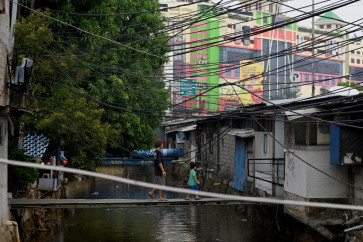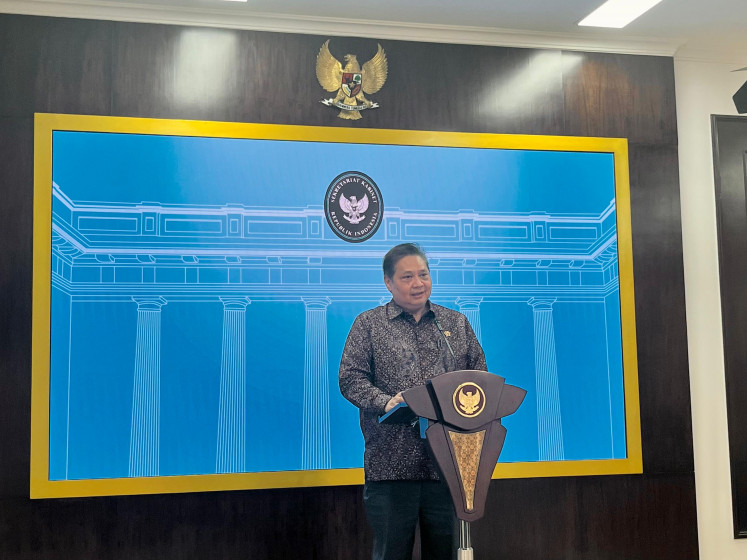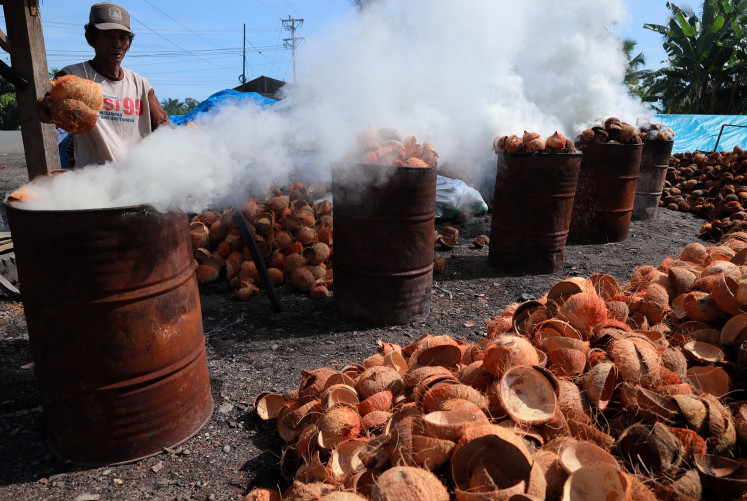The problem with ISI policies in Indonesia
With technological progress driving vast economic and societal change the government is planning for the future with its industrial strategy Making Indonesia 4
Change text size
Gift Premium Articles
to Anyone

W
ith technological progress driving vast economic and societal change the government is planning for the future with its industrial strategy Making Indonesia 4.0, yet, import substitution industrialization (ISI) has raised its ugly head yet again.
In the age of Brexit, with the United Kingdom demanding reduced competition in the labor market, and United States President Donald Trump’s America First policy that aims at bringing sunset industries back onshore, a vocal group is calling for protection of Indonesian industry to make it more competitive.
Far too often, the proponents of ISI time and again refer to the developmental states of South Korea, Japan, Taiwan and Singapore to back up claims that industry in Indonesia is uncompetitive, and thus needs protection and incentives to allow it to grow, with the delusional belief that once these industries become internationally competitive, protection can and will be removed.
While it is unsurprising to see these arguments made on social media, it is especially disheartening to see students and even academics of political economy and development studies comparing the experiences of South Korea with Indonesia to back up their calls for ISI policies.
I refer specifically to the article “Industry 4.0: Yet, we still have basic problems” (The Jakarta Post, May 28).
It appears that the proponents of ISI have not paid attention to the literature published since 1990, the year that London School of Economics professor Robert Wade published Governing the Market and UC San Diego professor Stephan Haggard published Pathways from the Periphery, which systematically dispel the myths of ISI being responsible for the rapid development of South Korea.
To better understand the South Korean developmental experience while explaining why it cannot be applied to the Indonesian context, it is necessary to re-examine the historical origins of the South Korean nation-state and its developmental trajectory.
As a result of Japanese colonialism, the Korean War and the division of the peninsula, social structures and vested interests were effectively overhauled and destroyed.
Left behind was a highly centralized state and a small but ideologically unified elite group of businesspeople and policy makers.
Consolidation of power during South Korea’s state formation meant the state was not indebted to the popular classes, and thus was not obliged to engage in redistributive activity.
While these social and economic upheavals were indeed painful for Koreans, what was left behind were ample conditions for take-off growth.
As the country underwent rapid development, South Korean industries were not simply protected, incentivized, allowed to grow until they reached international competitiveness and then had protection removed, as the proponents of ISI would have us believe.
In its place, the concept of governing the market was introduced by Robert Wade.
While the South Korean government did afford strategic industries protection, incentives and access to capital, it also exercised strict discipline and selectivity, using market signals to judge dynamic efficiency.
Industries were gradually exposed to market forces, and those that could not upgrade and meet export targets were rationalized or left to fail, ensuring they would not become protection lobbies.
This process was a form of industrial Darwinism, implemented by the highly centralized state and an Economic Planning Board that was both embedded in and autonomous from the private sector.
Can this development trajectory be replicated in Indonesia? It is highly doubtful.
This vast archipelago comprises an array of social structures that under Dutch and Japanese colonialism were not dismantled, but perpetuated.
At the time of independence, there was a plethora of interest groups that had stakes in the power pie. In order to lead a unified state, then-president Sukarno embarked on a policy of mass incorporation that produced a fragmented state structure.
The concepts of aksi (action) and rakyat (society) were embedded in the national character of the country, which even the authoritarianism of Soeharto could not erase. Essentially, the state had entered into a social contract with the people.
Governments were aware that to maintain order, they must govern by incorporating interest groups, meaning they were obliged to engage in redistributive activity.
These conditions have often led to the protection of industry or resource competition, which may be functional for regional growth and maintaining social order but impedes international competitiveness.
This was perpetuated by decentralization that gives regions the power to direct economic strategy, and which often does not align with central government strategy.
We must accept that Indonesia’s growth may not reach the heights of smaller and highly centralized states such as South Korea that had the power to direct development policy centrally.
This is not to criticize Indonesia nor its decentralized structure, but highlights the futility of assuming that structural characteristics can be transplanted from one context to another without considering historical and political realities.
Indonesia must therefore seek its own path of development.
Nevertheless, the reality is that ISI in its application too often results in policy misdiagnosis. It erroneously distributes income to industries and bosses who do not deserve it, and raises the costs for industries that are already internationally competitive.
This is aptly demonstrated by Trade Ministry Regulation No. 82/2017 that became effective on April 26, which obliges coal and palm oil exporters as well as rice importers to utilize transportation and insurance services provided by local companies.
However, local companies have neither the capacity nor global networks of international firms, thereby creating additional costs.
As Indonesian Coal Mining Association executive director Hendra Sinadia pointed out, “As coal and CPO [crude palm oil] are Indonesia’s two biggest export commodities, if this regulation burdens business, how will it impact the whole economy?”
In sum, we certainly can learn lessons from the experience of the East Asian tigers such as South Korea, but suggesting that their developmental experience can be transplanted to the Indonesian context is folly.
Moreover, while protectionism is a useful instrument for development, we must move away from the delusion that industries will somehow become internationally competitive when they are afforded such privileges only in the domestic economy.
And yet it seems the proponents of ISI are keen to continue perpetuating this myth.
__________________________________________________
The writer is a MSc graduate in political economy of emerging markets from King’s College London and recently completed a visiting research fellowship at the ASEAN Studies Center, Gadjah Mada University, Yogyakarta.









